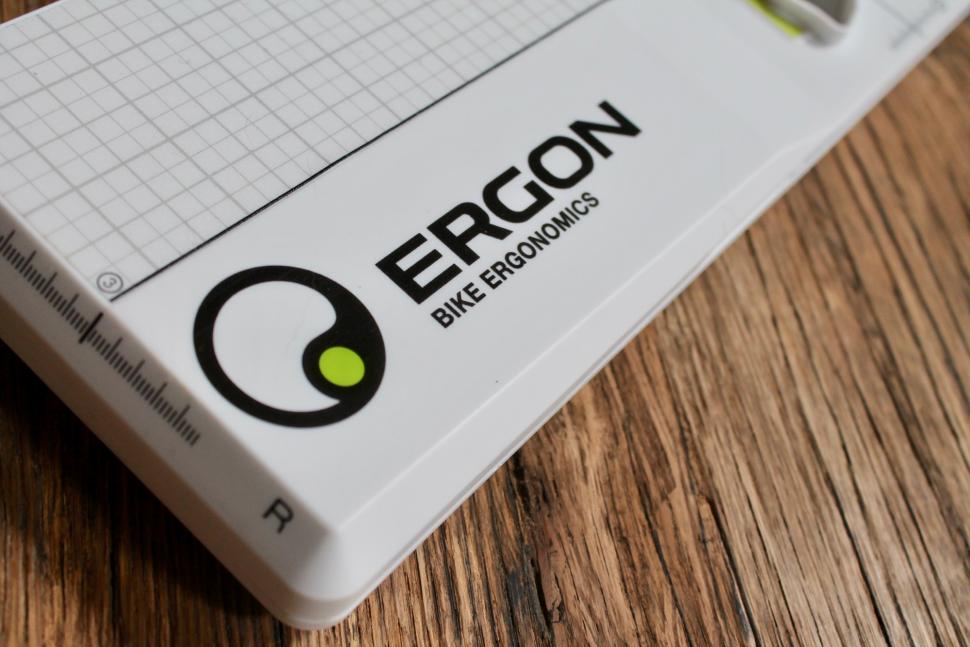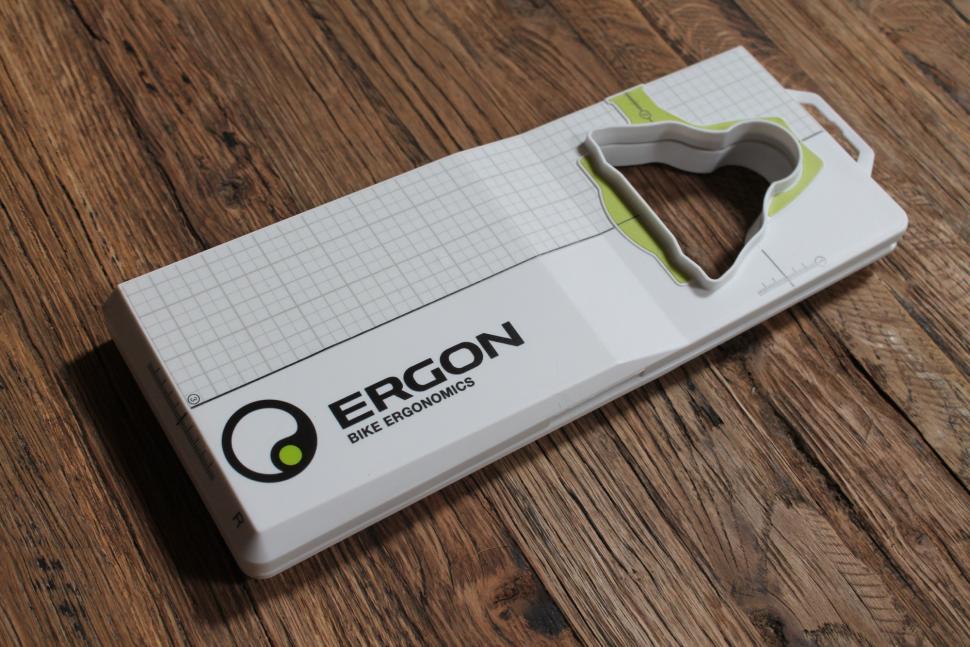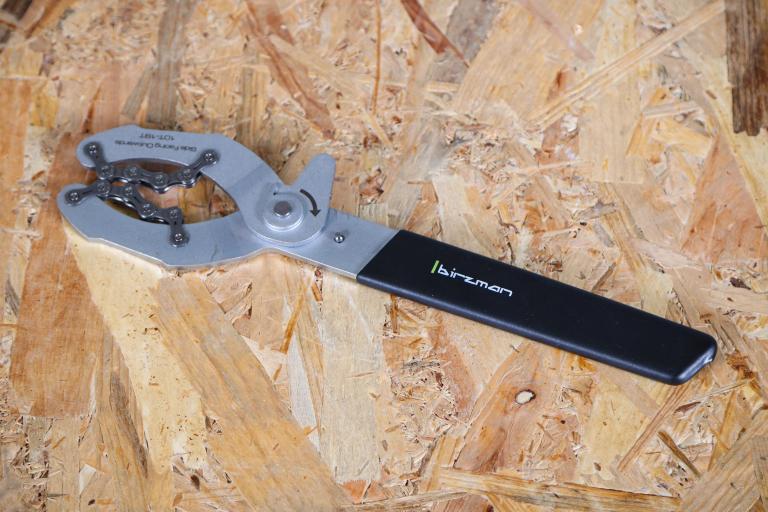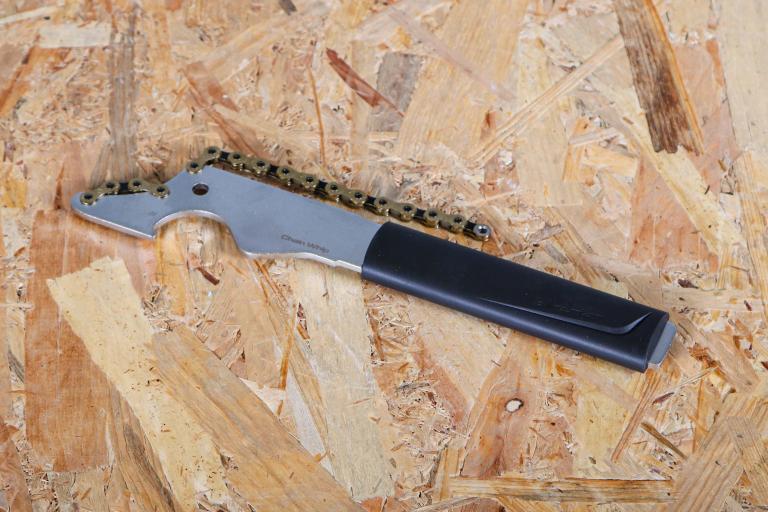- News
- Reviews
- Bikes
- Accessories
- Accessories - misc
- Computer mounts
- Bags
- Bar ends
- Bike bags & cases
- Bottle cages
- Bottles
- Cameras
- Car racks
- Child seats
- Computers
- Glasses
- GPS units
- Helmets
- Lights - front
- Lights - rear
- Lights - sets
- Locks
- Mirrors
- Mudguards
- Racks
- Pumps & CO2 inflators
- Puncture kits
- Reflectives
- Smart watches
- Stands and racks
- Trailers
- Clothing
- Components
- Bar tape & grips
- Bottom brackets
- Brake & gear cables
- Brake & STI levers
- Brake pads & spares
- Brakes
- Cassettes & freewheels
- Chains
- Chainsets & chainrings
- Derailleurs - front
- Derailleurs - rear
- Forks
- Gear levers & shifters
- Groupsets
- Handlebars & extensions
- Headsets
- Hubs
- Inner tubes
- Pedals
- Quick releases & skewers
- Saddles
- Seatposts
- Stems
- Wheels
- Tyres
- Health, fitness and nutrition
- Tools and workshop
- Miscellaneous
- Tubeless valves
- Buyers Guides
- Features
- Forum
- Recommends
- Podcast
£19.99
VERDICT:
Replicable cleat placement that allows for experimentation with millimetre accuracy
Allows repeatable cleat installation/replacement
Pretty much indestructible
Instructions could be clearer
Weight:
177g
Contact:
At road.cc every product is thoroughly tested for as long as it takes to get a proper insight into how well it works. Our reviewers are experienced cyclists that we trust to be objective. While we strive to ensure that opinions expressed are backed up by facts, reviews are by their nature an informed opinion, not a definitive verdict. We don't intentionally try to break anything (except locks) but we do try to look for weak points in any design. The overall score is not just an average of the other scores: it reflects both a product's function and value – with value determined by how a product compares with items of similar spec, quality, and price.
What the road.cc scores meanGood scores are more common than bad, because fortunately good products are more common than bad.
- Exceptional
- Excellent
- Very Good
- Good
- Quite good
- Average
- Not so good
- Poor
- Bad
- Appalling
The Ergon TP1 Pedal Cleat Tool is a foolproof way to guarantee your cleats are perfectly aligned, every time. It does need some attention to the instructions, and there's a knack to it, but overall it's far better than the Eye-O-Meter of yesteryear.
If you do a four-hour ride, you'll mash each pedal about 20,000 times. That's 20,000 flexions of your knee, ankle, and hip joints. If you ride once a week, that's a million pedal strokes a year. It doesn't take a genius to realise that if your foot isn't in the right place, at the right angle, you're risking picking up an injury to a joint, ligament or muscle – and that's then an injury that will at best never go away, as each pedal stroke compounds the problem.
> Find your nearest dealer here
A bike fitter will pay close attention to your foot and knee tracking – literally, to the millimetre – to ensure your foot is moving up and down in the right plane relative to your hip. Recorded, repeatable shoe-cleat alignment is therefore really important to avoid picking up an injury over time.
The problem here is that cleats are disposable items – if you're riding often, it's likely you'll need one or two new sets each year. So how do you guarantee that the five-minute job of replacing cleats doesn't introduce errors in cleat placement that, over time, could see a significant drift of foot position away from the optimum?
Enter the Ergon TP1 Pedal Cleat Tool…
It's a pretty simple idea: the cleat's bolted loosely to your shoe and goes in the hole. Then you move the shoe around in three axes – back/forth, sliding left/right, and finally twisting the heel left/right. The markers on your shoe point to the scale/grids on the tool. Once it's in the right place, you lock the bolts down without removing the shoe from the tool.
The first step is to identify your first metatarsal joint – that's the big bulge where your big toe attaches to your foot, often called the 'ball of your foot'. With your foot in the shoe, you affix one of the provided green sticky arrows to the outside, directly in the centre of the ball. This then forms the reference point, under which the pedal axle needs to go for optimal power transfer. Another sticker goes on the rear of the heel of your shoe, in line with your achilles tendon. So two stickers per shoe.
Bike fit opinion seems divided on where the axle should go relative to the metatarsal joint – some say further back, midway between the big toe and the little toe (fifth metatarsal) joint. The Ergon tool doesn't replace the advice of a professional bike fitter and, as ever, if it feels weird, adjust and/or seek advice.
> 9 ways to make your bike more comfortable
It's these stickers that are critical to the repeated alignment process. Every time you replace the cleats, you need to mark your shoe, to ensure you are putting it back in the same place after replacing the cleat. If you are swapping the fit to a new pair of shoes, you need to ensure you've done the 'Find My Ball/Heel' step the same as the very first fit.
In the pack you get six stickers, on an easy-peeling sheet. Once you've used them they peel off your shoes easily, and go back on the sheet for next time. I removed and replaced them a dozen times and the glue still worked fine – so I can't see them wearing out before you do. Of course any sticker or even soft pencil or marker pen will do the trick.
> The importance of a bike fit and riding position
There's a knack to tightening down the cleats without skewing the shoe relative to the tool markings – I found sneaking up on the torque by going between the bolts a few times gave an accurate fixing, instead of just cranking down on one then the next. As the tool is open underneath, you just slide it forwards off the edge of the table or bench to expose the cleat bolts without disturbing the shoe/tool alignment.
When not in use, the instructions and stickers hide inside the folded tool, which then can hang on a wall for next time you need new cleats. I won't say the instructions are perfect – Ergon could use some help to more clearly tell the story here. Ergon has some good videos which are far better to watch than the instructions are to read.
If you're doing a new installation you shouldn't expect a perfect fit on the first go – Ergon states in the video that most people will need to do a test ride and then adjust. The tool certainly makes this process much quicker and more accurate.
I'd recommend using a sheet of paper to record your cleat fit notes and keeping that with the tool – otherwise it'll be lost when you come round to replacing them next year.
Ergon does four other tools in the range – for Shimano SPD (mountain bike), Crank Brothers, Look Keo and Speedplay. So you're pretty much covered no matter what pedals you ride.
Value
Now £19.99 may seem a bit much for a bit of plastic – it's the RRP of Shimano SL cleats, and about the price of the other cleats they cover – but if you're spending 20 quid on cleats every six months because you're riding a lot, an additional 20 quid once in your lifetime to buy the correct tool to align them correctly when swapping them isn't really a big investment.
Previously I've used the Eye-O-Meter for cleat replacement, or a marker pen to trace around the old cleat to get the new cleat in place. The marker pen trick is pretty accurate – assuming you had the positioning correct in the first place, and equal across both shoes. If you're going to a new pair of shoes, especially a different model, then all bets are off as in that case there's no reference.
> idmatch Cleat Fit: the high tech way to position your cleats!
There are very few other options to get your cleats perfectly aligned, and they are all considerably more expensive. Shimano's own TL-SH11 Cleat Setting Tool does both SPD and SPD-SL, but it's around £130. The boutique Velobene CleatMaster tool only does one kind of cleat, and is a toe-curling $380 plus shipping per cleat type from the US.
Conclusion
Overall, for the price of a few coffees and cakes, for guaranteed correct cleat placement, replicable replacement and injury prevention, the Ergon TP1 Cleat Tool should be on every serious cyclist's tool list. Given how often it's used and the fact that it'll never wear out, maybe buy one with your riding buddies and pass it round as needed. Or rent yours out for the price of a mid-ride espresso. However you get hold of one, just do it. Be nice to your joints – they're likely going to do a few million revs for you this year.
Verdict
Replicable cleat placement that allows for experimentation with millimetre accuracy
road.cc test report
Make and model: Ergon TP1 Pedal Cleat Tool
Size tested: Shimano SPD-SL
Tell us what the product is for and who it's aimed at. What do the manufacturers say about it? How does that compare to your own feelings about it?
Ergon says: "Correctly installed cleats are noticeable from the first ride with the rider experiencing more power, more comfort, and more efficiency. The Ergon TP1 allows for the accurate adjustment of the three axis which are important when installing cleats: fore/aft position, the stance (Q-Factor), and foot angle. While pedaling, leg power is transformed over your feet into propulsion. Therefore the right position of the feet is of the utmost importance, as it determines performance and comfort. The TP1 is the first tool for the precise and easy adjustment of cycling cleats. It is used by many professional teams and bike-fitting specialists around the world."
Tell us some more about the technical aspects of the product?
From Ergon:
TP1 Shimano SPD – SL®
Use: Road Racing
Size: One Size
Shoe Size: One-Size-Fits-All
Material: Tech. Polypropylene
Rate the product for quality of construction:
10/10
Really solid construction.
Rate the product for performance:
10/10
Assuming you follow the instructions, it does exactly what it says on the tin.
Rate the product for durability:
10/10
Tougher than boots – this will probably live longer than you will.
Rate the product for value:
10/10
There are very few other options to get your cleats perfectly aligned, and they are all considerably more expensive. Shimano's TL-SH11 Cleat Setting Tool does both SPD and SPD-SL, but it's around £130. The boutique Velobene CleatMaster tool only does one kind of cleat, and is a toe-curling $380 plus shipping per cleat type from the US.
Here, for the price of one set of cleats, you can guarantee every future pair gets fitted correctly.
Tell us how the product performed overall when used for its designed purpose
Once I understood what to do, the process is easy and accurate.
Tell us what you particularly liked about the product
Accuracy. It's all about accuracy.
Tell us what you particularly disliked about the product
The insteructions need work.
How does the price compare to that of similar products in the market, including ones recently tested on road.cc?
Way, way cheaper for similar functionality. The shoe-brand ones start at over five times the price.
Did you enjoy using the product? Yes
Would you consider buying the product? Yes
Would you recommend the product to a friend? Yes
Use this box to explain your overall score
If the instructions were clearer I'd give it 10/10. The alternative cleat tools from shoe manufacturers cost ten times as much, and look to do much the same.
About the tester
Age: 46
I usually ride: Merida Ride 5000 Disc My best bike is: Velocite Selene
I've been riding for: Over 20 years I ride: A few times a week I would class myself as: Expert
I regularly do the following types of riding: cyclo cross, club rides, general fitness riding, mtb, Dutch bike pootling.
Living in the Highlands, Mike is constantly finding innovative and usually cold/wet ways to accelerate the degradation of cycling kit. At his happiest in a warm workshop holding an anodised tool of high repute, Mike's been taking bikes apart and (mostly) putting them back together for forty years. With a day job in global IT (he's not completely sure what that means either) and having run a boutique cycle service business on the side for a decade, bikes are his escape into the practical and life-changing for his customers.
Latest Comments
- bensynnock 28 min 21 sec ago
Stick it in the road.
- Hirsute 1 hour 26 min ago
If you can't see a %^$&ing large tractor what ^%$£"!*ing hope is there that you will see a cyclist ?...
- chrisonabike 1 hour 44 min ago
Well if you *can* interview the original riders at all surely they worked, at least?...
- David9694 2 hours 13 min ago
Live: Car plunges over wall and lands on beach rocks...
- biking59boomer 2 hours 19 min ago
Looks like yet another bike share service that's going to fold because of selfish idiots.
- quiff 6 hours 24 min ago
Fair point - I was restricting myself to pedal bikes. As I've never spent that kind of money on anything though (mortgage doesn't count), it's kind...
- brooksby 7 hours 26 min ago
And finally: I wonder how many of the "more than 3,000" signatures on that petition are actually locals, who live or work there (and are not just...
- Doug_D 9 hours 2 min ago
Another book suggestion - I can highly recommend "Lost Summers and Half-Forgotten Afternoons: A Mint Sauce collection" - a beautifully presented...









Add new comment
1 comments
Good idea, well executed. This is something you really need to do at home rather than with a bike fitter I think, because there's a lot of trial and error to get the initial setup, takes hours. And knowing that you can reproduce that fine-tuned setup means it's worthwhile spending all that time to get it just right.